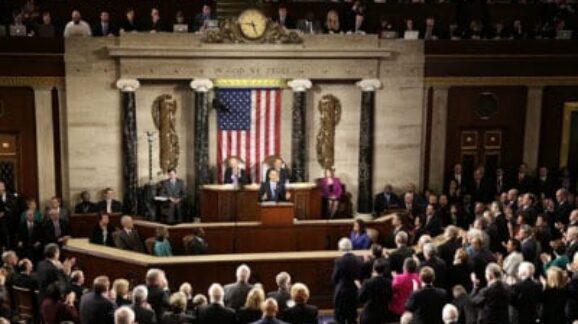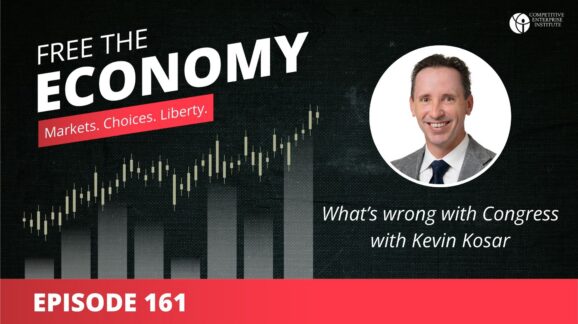There are two main areas in which Congress can enact meaningful reform. The first is to rein in regulatory guidance documents, which we refer to as “regulatory dark matter,” whereby agencies regulate through Federal Register notices, guidance documents, and other means outside standard rulemaking procedure. The second is to enact a series of reforms to increase agency transparency and accountability of all regulation and guidance. These include annual regulatory report cards for rulemaking agencies and regulatory cost estimates from the Office of Management and Budget for more than just a small subset of rules.
In 2019, President Trump signed two executive orders aimed at stopping the practice of agencies using guidance documents to effectively implement policy without going through the legally required notice and comment process.
Featured Posts

Blog
Trump’s SOTU conundrum: Deregulation today, swamp tomorrow?
Donald Trump’s 2026 State of the Union (SOTU) address presents an opportunity to confront the federal spending, entitlement, and regulatory behemoth in a new way…

Blog
The week in regulations: Grandfathered driver vision and socializing dogs
The Supreme Court declared President Trump’s IEEPA tariffs unconstitutional. The White House responded by enacting a 15 percent global tariff under a different statute. The…

Blog
Free the Economy podcast: What’s wrong with Congress with Kevin Kosar
In this week’s episode we talk about we talk about Consumer-Regulated Electricity, the amazing falling US poverty rate, and how smart…
Search Posts
Blog
New CEI study: Zero-based regulations
A new CEI study by Alex Adams looks at a regulatory reform approach that succeeded in Idaho: zero-based regulation. The idea is similar to…
Study
The Beauty of Regulatory Sunsets
Introduction In 2019, Idaho pioneered zero-based regulation (ZBR), an orderly approach to statewide regulatory reform. Like zero-based budgeting, ZBR starts with the presumption that existing…
Letters
CEI Joins ATR in Free-Market Coalition Urging Approval of Warner Bros. Discovery Acquisition
Dear Members of Congress, The proposed acquisition of Warner Bros. Discovery, Inc. by an existing studio would provide great benefits to consumers. Regulators and legislators…
Blog
Free the Economy podcast: China’s economy and the US with Derek Scissors
In this week’s episode we talk about corporate real estate investing, woke pension funds, changing fuel economy rules, and questions about…
Blog
The week in regulations: 2025 year-end special
Happy New Year, everyone. The final numbers for 2025’s regulations are in. The first half of this post summarizes those numbers and compares them with…
Blog
Trump slashed rulemaking in 2025. The hard part starts in 2026
The new year, 2026, marks nearly the first full year of Donald Trump’s second administration. It’s a moment to assess whether regulatory liberalization has genuinely…
Staff & Scholars

Clyde Wayne Crews
Fred L. Smith Fellow in Regulatory Studies
- Business and Government
- Consumer Freedom
- Deregulation

Ryan Young
Senior Economist and Director of Publications
- Antitrust
- Business and Government
- Regulatory Reform

Fred L. Smith, Jr.
Founder; Chairman Emeritus
- Automobiles and Roads
- Aviation
- Business and Government

Sam Kazman
Counsel Emeritus
- Antitrust
- Automobiles and Roads
- Banking and Finance

Marlo Lewis, Jr.
Senior Fellow
- Climate
- Energy
- Energy and Environment